5 Things From 'The L Word' That Didn't Stand The Test Of Time
'The L Word' was a revolutionary show and even spawned a modern spin-off with 'Generation Q,' but not everything from the original aged as well as Bette Porter.
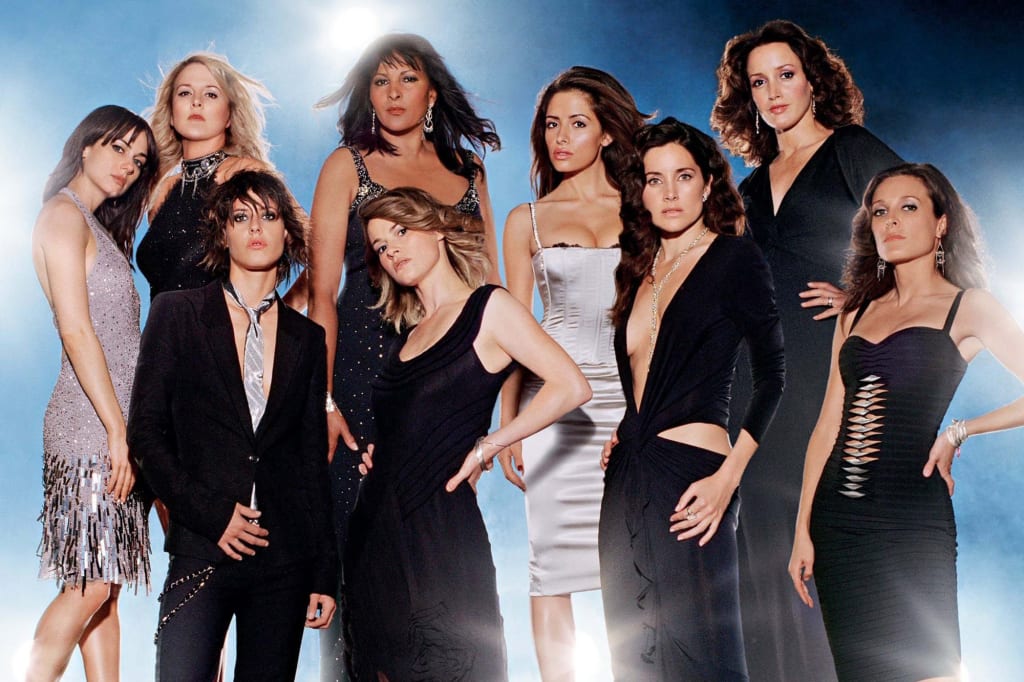
Showtime's The L Word was groundbreaking. While the very subject of the LGBTQ+ community was downplayed after the AIDS epidemic hit, the late 90s and early 2000s brought the community into a bigger light with a different perspective in television and film. Shows like The L Word aimed to depict the lives of queer people as "normal," along with giving queer actors a chance to play a version of themselves on television. The series has a loyal fanbase and was instrumental in a lot of Millennial-age queer people seeing representation for the first time. However, there are a lot of things that the original series did that didn't really hit the mark by today's standard.
While fans of the original show now have a new version, Generation Q, to focus on, there's no real way of denying what a huge goal of the new series is. Generation Q came into play with the aim of not just bringing back some of the original characters along with new characters, but it is to try and fix some aspects of The L Word that haven't stood the test of time. The updated cast is more diverse and represents the LGBTQ+ community on a wider scale, but it wasn't always that way.
With this list, we are focusing on five things from The L Word that haven't necessarily aged as well as we would have liked. A majority of the aspects covered in the show are timeless and continue to support the fight of the LGBTQ+ community, but not everything was lucky enough to make that cut.
5. The lack of differentiation between gender and sexuality
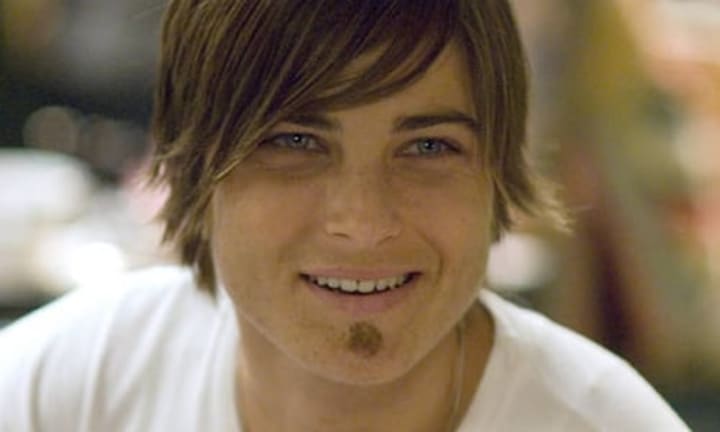
Starting off the list, we have an issue that was never fully explored in-depth with any character on the show. While it is a bit more understood in 2021, the fact is The L Word never fully recognized (or explained) that there is a difference between gender and sexuality. This is showcased time and time again, but two primary examples are the way the show handled Ivan and Max.
While Ivan seemed pretty cut and dry in regards to identifying as a straight male, the relationship he maintained with Kit was cut off because of biology vs. sexuality. While seeing Ivan as a biological woman, Kit had the mental image to confuse who Ivan was - at least that's the assumption we got as viewers. Could Kit have never brought it up again and continued to see Ivan as a man? Time would have told, but we didn't get to see that and learn from it along with Kit.
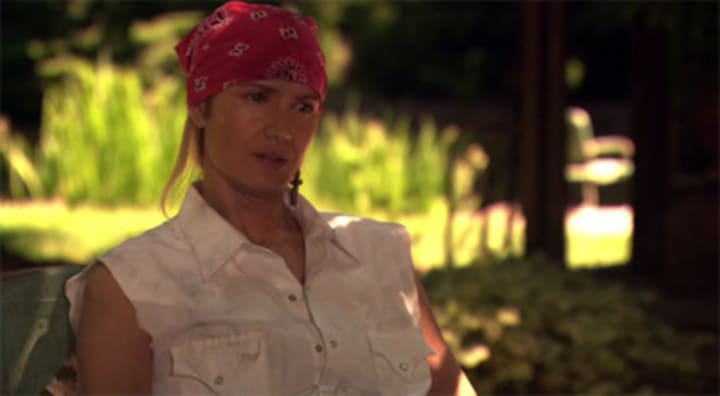
Max was a lot more rocky and as time has gone on, a lot of criticism has been thrown at the show for its depiction of Max's transition. When we first meet him as Moira, he's a butch lesbian dating a woman. Then all of a sudden as soon as Max starts testosterone treatments, he is pursuing men and even becomes pregnant after yet another abuse-driven relationship. The lack of understanding or explanation regarding Max's evolution from a lesbian to a seemingly gay man was strange. No one assumed as soon as Max transitioned that he'd morph into this straight presenting individual, but there was no explanation or discussion surrounding the shift. It came across as, once again, Max just blaming testosterone for sexual behavior.
We're not even going to open the can of worms that was Lisa the male lesbian.
4. Dealing with the subject of race
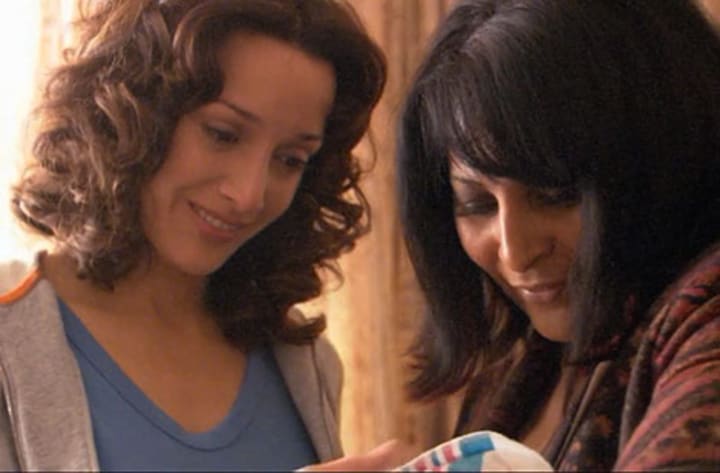
One thing that Generation Q tried to remedy that lacked in The L Word was diversity. While the LGBTQ+ community is very diverse, the community represented on the original iteration of the show was very... white.
As far as main characters go, the only people of color were Bette and Kit. We did have short-lived supporting characters like Carmen, Tasha, and Papi, but for the most part the show's cast consisted of nothing but white people. It's not only something that is incredibly unrealistic in regards to the queer community as a whole, but to expect the West Hollywood queer community be nothing but white people is pure fantasy. The show also didn't make any apologies over stereotyping Kit's struggles with addiction despite fellow white characters also abusing substances (looking at you, Shane).
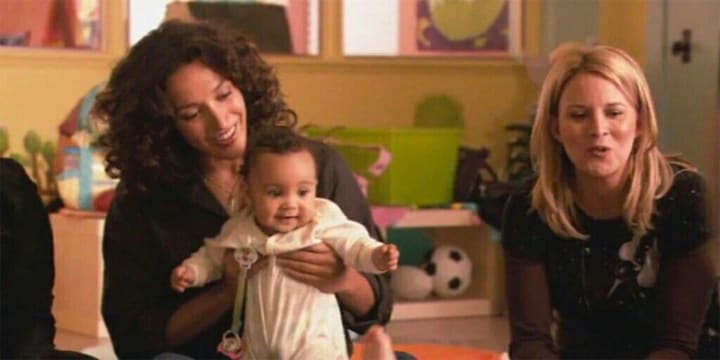
What else didn't quite age well in regards to diversity is the fact that the only controversy that really came up felt manufactured. Yes, I'm talking about when Bette was adamant about creating a mixed race child with Tina. Bette's argument was that she wanted a child that would aesthetically cater to both her and Tina so they were a reflection of who they both were biologically. I recently re-watched The L Word and while I see the well intent, it comes off as Bette simply wanting to trick people into thinking she, not Tina, was Angelica's birth mother. At the end of the day, it had very little to do with concern that Angelica growing up around only white people could be damaging. It was all about Bette's ego and I don't see this storyline being deemed "okay" in 2021 because looking back on it, it's fairly cringeworthy.
3. Biphobia
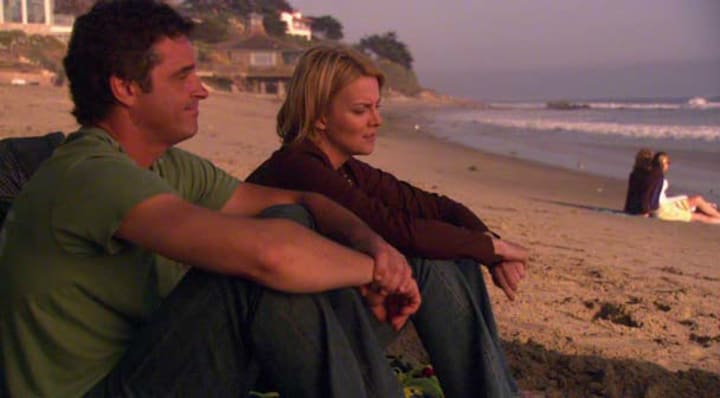
Even in 2021, biphobia is a huge problem within the LGBTQ+ community. Bisexuals constantly get criticized by their own peers for being incapable of monogamy, just being gay and not wanting to admit it, not wanting to pick a side, for tricking lesbians/gays into partnerships, etc. Some of the comments I have personally seen towards bisexuals from fellow queer people is downright disgusting. And what did The L Word do? Well, they fed into those very stereotypes. You could go far enough to say that the show encouraged it.
While The L Word has bisexual characters with Alice and Tina, their choice of partners is heavily judged (and even mocked) by their lesbian friends. There are moments where other characters like Dana and Bette call them disgusting. When Tina leaves Bette to pursue men, Alice tells Dana that she now understands why/how bisexuality is gross. Prior to this, it was Alice who was the token bisexual endlessly being criticized by her friends and told to "pick a side" whenever she'd go out with a man.
Similar to the gender vs. sexuality argument, the bottom line is biphobia wasn't okay in the early 2000s and it's not okay now. Bisexuality exists and is completely valid.
2. Transphobia
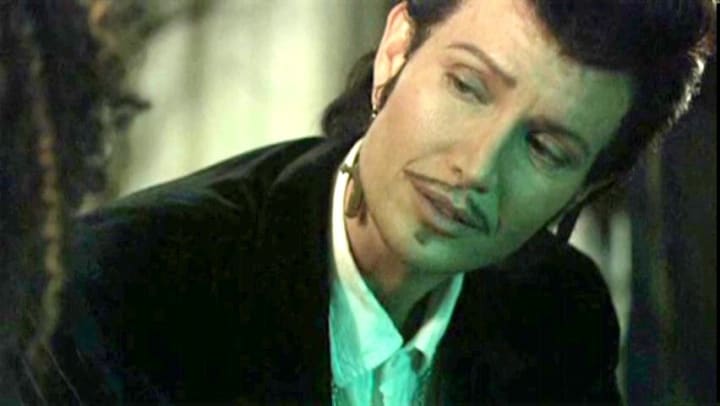
The L Word was bold to feature transgender characters as it wasn't really something that was on the public's radar in the early 2000s. About the only exposure anyone got was the "are they men or women?" episodes of The Maury Show. The show introduced viewers to trans characters and while it was groundbreaking, it was also quite problematic.
The subject of being transgender came up back in season 1 when Kit befriended a trans performer named Ivan Aycock. Kit's relationship with Ivan ultimately resulted in her taking ownership of The Planet, but it also ended abruptly because Kit accidentally saw Ivan as a biological woman. We were re-introduced to the subject in season 3 when Jenny returned to Los Angeles with her then girlfriend, Moira. After a few episodes, Moira came out as trans and began to transition into Max. He was easily the most visible trans character and was the first visibly trans person on TV for a lot of viewers. However, the show didn't handle his transition very well. Aside from fulfilling a lot of toxic male stereotypes, Max was overly aggressive and used a lot of excuses to justify his behavior. He was incredibly abusive to Jenny and her friends and even managed to gaslight Dana during her cancer battle, etc. The poor writing of the character led to the enabling of a lot of transphobia. While characters like Kit used every opportunity to criticize Max for "giving up" on womanhood, characters like Jenny tried to use Max to further her own career.
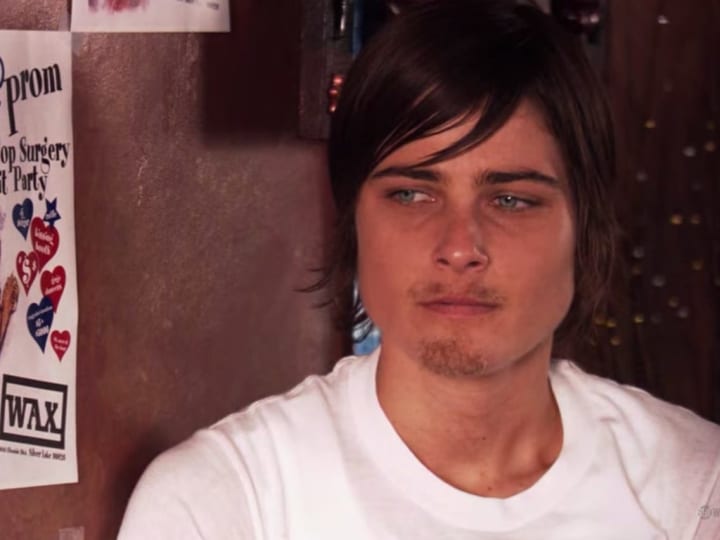
Ultimately what the showrunners did with their trans characters was perpetuate that every man in the show was inherently bad. While the task at hand was to celebrate the LGBTQ+ community, male or female, the buck stopped with being trans.
1. Jenny Schecter
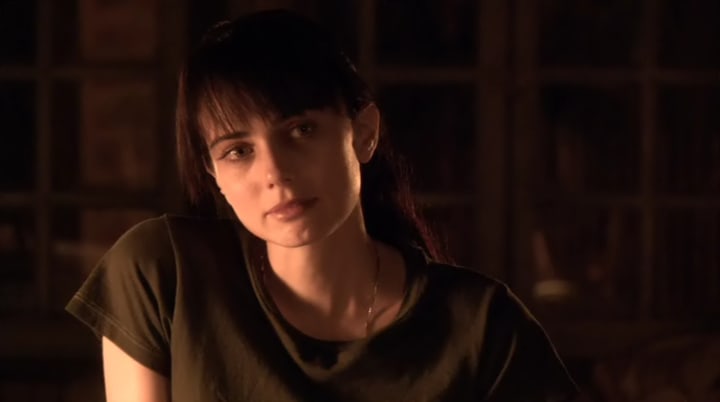
Ah yes, Jenny Schecter. She was first introduced to the show as the girlfriend of Bette and Tina's neighbor, Tim. At first, Jenny seemed like an average smaller town girl who suddenly was thrust into this brand new lifestyle and surrounded by people she wasn't accustomed to seeing every day. Not long after her introduction, she becomes the infatuation of the owner of The Planet, a woman named Marina.
Jenny's relationship with Marina sparked an abrupt shift from the girl dating the straight boy next door to the traumatized lesbian trying to find herself. Jenny was always irritating, but in the beginning she was somewhat relatable. There are a lot of us out there who took a long time to come into our own and feel safe enough to express who we really were. She had every possibility of being a great character for several reasons. She was setup to be representation for a lot of people with her same struggles and with her same gumption. However, by the end of the series Jenny was downright intolerable. Some critics blame her character single handedly for destroying The L Word.
Between narcissistically victimizing herself at every turn, she revealed herself to be a compulsive liar. From hallucinogenic memories to a stint of cutting herself in a strip club while speaking in Yiddish, we never really get a grasp on what exactly is wrong with Jenny. The implication is that at some point in childhood she experienced sexual abuse and the house of cards came crashing down after her experience with Marina. A major issue with the way her character was written was that viewers not only were given the chance to not believe her, but they were also given every reason to not care.
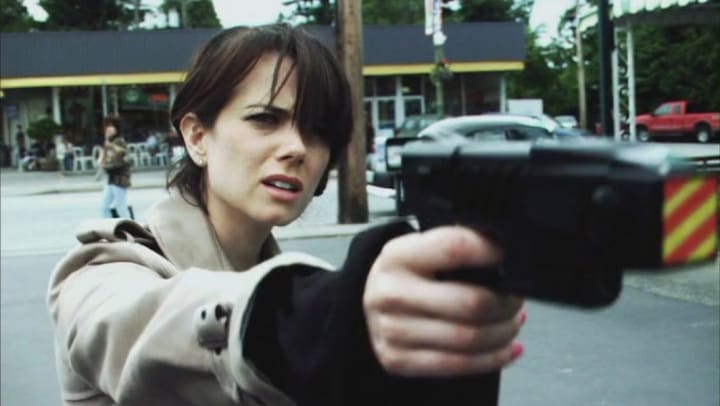
You start caring even less after she is signed to a book deal where she tells the story of her journey from a midwestern girl to a West Hollywood lesbian. She then writes "Lez Girls," unashamed that her story is basically a rip off her entire friend group - including secrets between each of them coded in different names. Her neurotic behavior reached an all-time high when her book receives a negative review and she adopts a shelter dog only to euthanize it. Why? Well, the girlfriend of the reviewer worked at the vet office and she used the dog to get close to her and destroy their relationship. We also can't forget how psychotic she got when "Lez Girls" was being adapted into a movie.
You hate to say that the best part of The L Word was when one of its main characters was found face down in Bette's swimming pool, but here we are. Literally everything about Jenny Schecter was mishandled and I have yet to witness a TV character that a fanbase has hated with more passion. Generation Q finally solved the mystery of "who killed Jenny?" by stating she died by suicide, but that is also problematic in a way. Nothing like another traumatized character implying that death is the only way out. Even in 2021 Jenny is disappointing.
About the Creator
Jenika Enoch
I love movies, music, sci-fi, and art. I'm a certified graphic designer and create my own art. Things that fuel me include equality, respect, and anything weird.


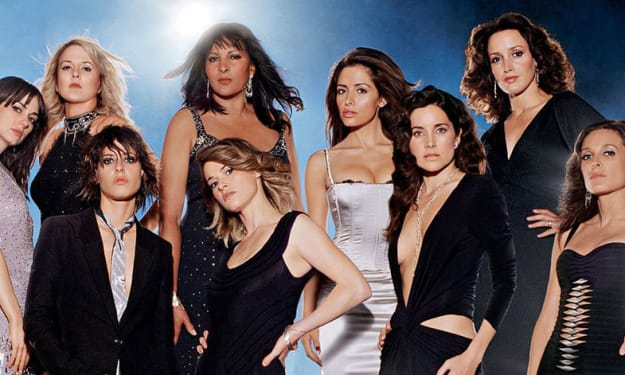



Comments
There are no comments for this story
Be the first to respond and start the conversation.